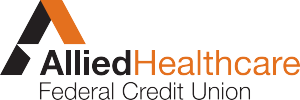Our goal is keeping your information safe and secure. Below are a few frequently asked questions and a few tips about security.
AHFCU internet banking uses an integrated security system to protect your account data from exposure to unauthorized persons. This system is a three-tiered security structure that governs a unique aspect of your AHFCU internet banking session.
At no time does any unauthorized person have access to AHFCU’s internet banking database via the internet. Any and all request for data must pass through a validation center. Each request and answer is logged at each stop through the firewall. Additionally, any suspicious activity is logged and causes an alarm. You should never give anyone your PIN or Password. Please keep this information in a safe place, away from your computer.
Encryption occurs for all information going to and from you and AHFCU internet banking. Plainly stated, encryption is “scrambling” your information. Encryption takes text and numbers and scrambles them into numerical nonsense before transmitting across the internet. This process uses keys to translate the “scrambled” nonsense back into usable data. There are billions of potential keys and a different one is used for each online session with AHFCU internet banking. The key to be used is established when the online connection is made between your computer and AHFCU internet banking.
Your personal account also has an additional layer of security surrounding your user name and password. These individual codes are specific to your individual account only. Additionally, the AHFCU internet banking system will automatically lock your access to your account should a number of unsuccessful attempts to access your account be made.
AHFCU uses 128-bit encryption otherwise known as domestic grade encryption. The use of this encryption gives us 309,485,009,821,345,068,724,781,056 possible key combinations.
Security Tips
If you receive a suspicious call, email or text:
Never give your personal information unless you initiated the call and know the company/representative you are speaking to. AHFCU will never contact you to verify your PIN, Social Security Number, Password, or to activate a card.
Create a strong password:
Use at least seven Characters, the more characters the better! Include upper and lower case letters and include numbers.
If you receive a suspicious email:
Forward the email directly to reportphishing@antiphishing.org.
Learn about Identity theft:
Visit the Federal Trade Commission website at www.ftc.gov.
Monitor your credit report:
You can request a copy of your credit report for free each year at www.annualcreditreport.com. If you see any suspicious accounts contact the respective bureau immediately.
Experian: 1-888-397-3742
Equifax: 1-800-685-1111
TransUnion: 1-800-916-8800
Be observant when withdrawing cash from ATMs.:
Look for wobbly parts and malfunctioning screens as these may indicate the presence of a card skimmer.
Install antivirus and anti-spyware software and keep it up to date.
Download and install all recommended security updates for your system.
Security Travel Tips
Fraud is a global problem and is prevalent in the use of cards. AHFCU takes proactive steps to protect cardholders as much as possible against fraudulent use of their card(s). When planning a trip, please notify us of the specific travel information such as; date of departure and date of return, a valid telephone number where you can be reached during your travel. With this information we will be able to allow you to use your card(s) while on travel.
Be sure to check the expiration on your card before leaving on travel to ensure it will not expire while on your trip.
While we do everything we can to ensure the use of your AHFCU card(s) it is always a good idea to have another source of payment with you as a backup.
Contact AHFCU immediately if your card is lost or stolen at (888) 488-9105.
Follow our SEA approach:
Slow Down! If a caller or texting party unknown to you is urgently requesting your card or personal data, hang up or ignore the text until you can evaluate the situation.
Evaluate: Do your own fact finding regarding calls and e-mails to determine why anyone needs your social security number, date of birth, or PIN. Chances are no one except a criminal needs this information.
Act: Notify AHFCU immediately if you think you have encountered a fraudster.



